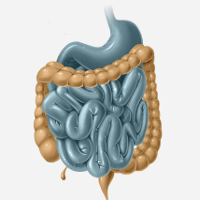August 2016
Kazim Sahin, Cemal Orhan, Fatih Akdemir, Mehmet Tuzcu, Hasan Gencoglu, Nurhan Sahin, Gaffari Turk, Ismet Yilmaz, Ibrahim H. Ozercan, and Vijaya Juturu
Abstract
Background
Mucuna pruriens, Tribulus terrestris and Ashwagandha (Withania somnifera) are widely known as antioxidant effective herbals and have been reported to possess aphrodisiac activities in traditional usages. In this study, we determined the effects of these herbals on sexual functions, serum biochemical parameters, oxidative stress and levels of NF-κB, Nrf2, and HO-1 in reproductive tissues.
Methods
Thirty-five male rats were divided into five groups: the control group, sildenafil-treated group (5 mg/kg/d), Mucuna, Tribulus and Ashwagandha groups. The extract groups were treated orally either with Mucuna, Tribulus or Ashwagandha (300 mg/kg b.w.) for 8 weeks.
Results
All of the extracts were found to be significantly effective in sexual functioning and antioxidant capacity and Tribulus showed the highest effectiveness. Serum testosterone levels significantly increased in Tribulus and Ashwagandha groups in comparison to control group. Tribulus was able to reduce the levels of NF-κB and increase the levels of Nrf2 and HO-1 to a much greater extent than Mucuna and Ashwagandha.
Conclusions
These results demonstrate for the first time that Mucuna, Tribulus and Ashwagandha supplementation improves sexual function in male rats via activating Nrf2/ HO-1 pathway while inhibiting the NF-κB levels. Moreover, Tribulus terrestris extract was found to be more bioavailable from Ashwagandha extract followed by Mucuna extract.










